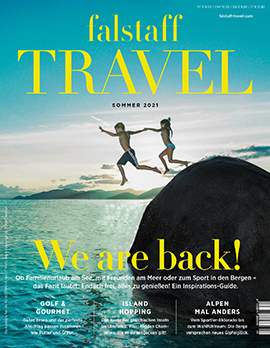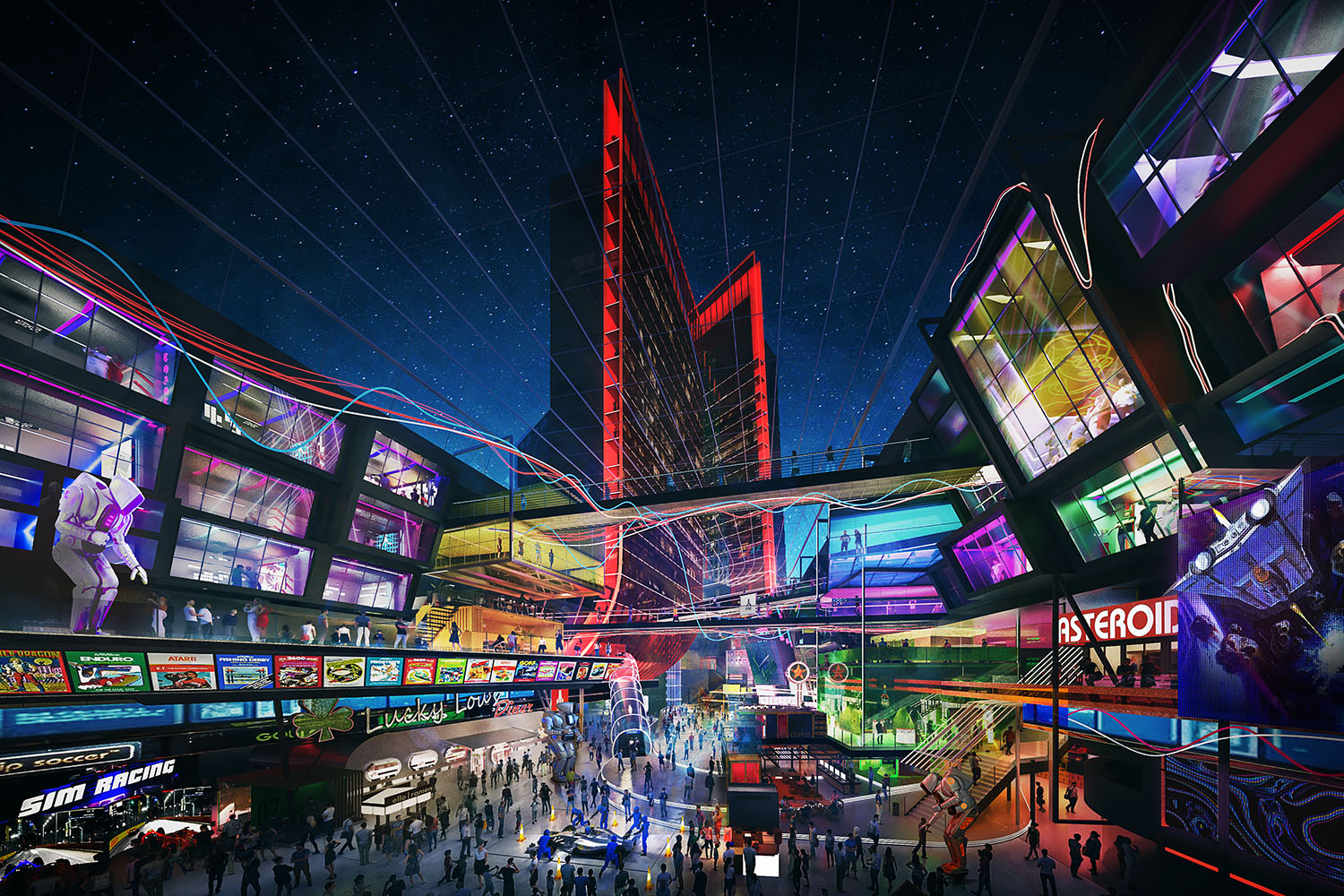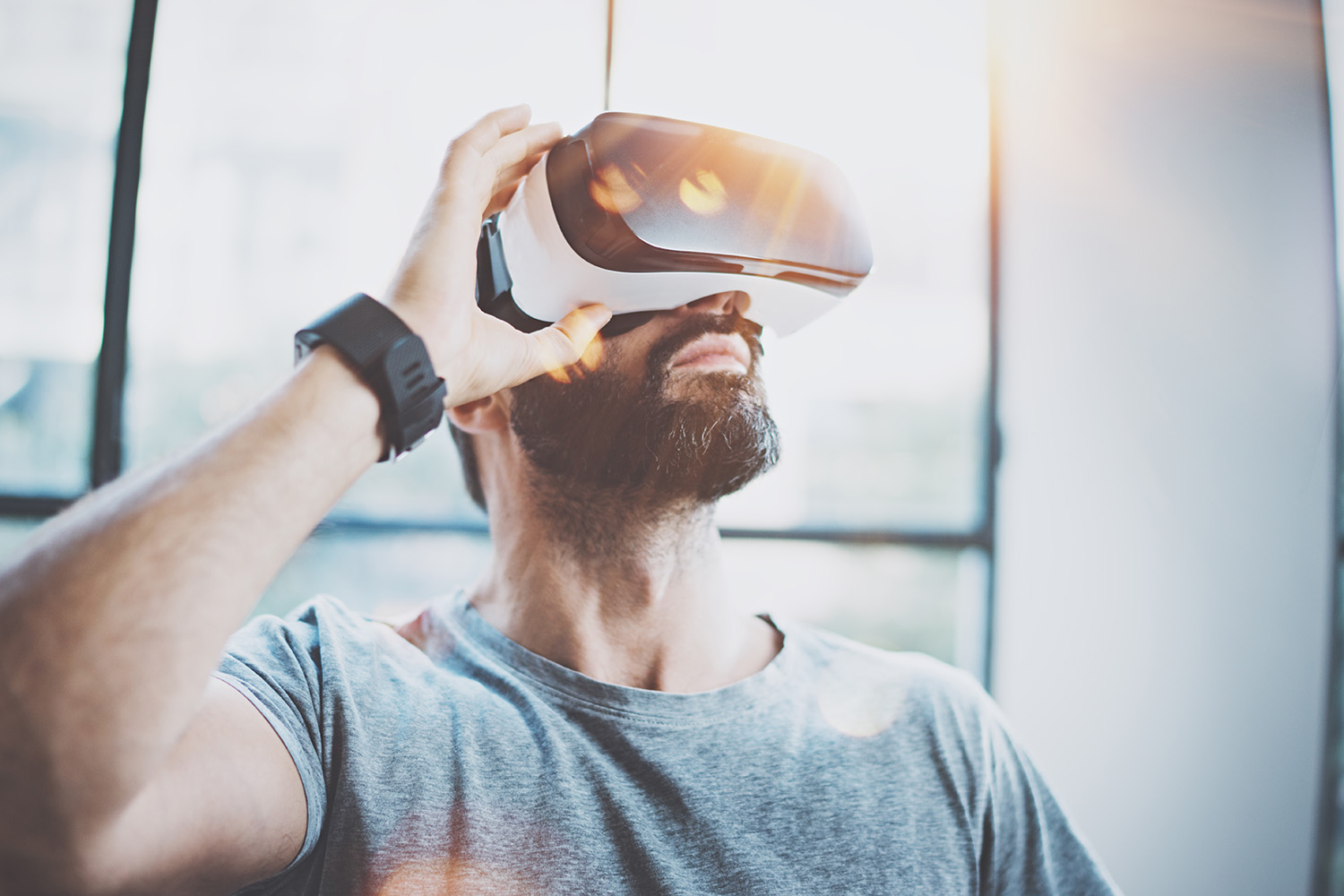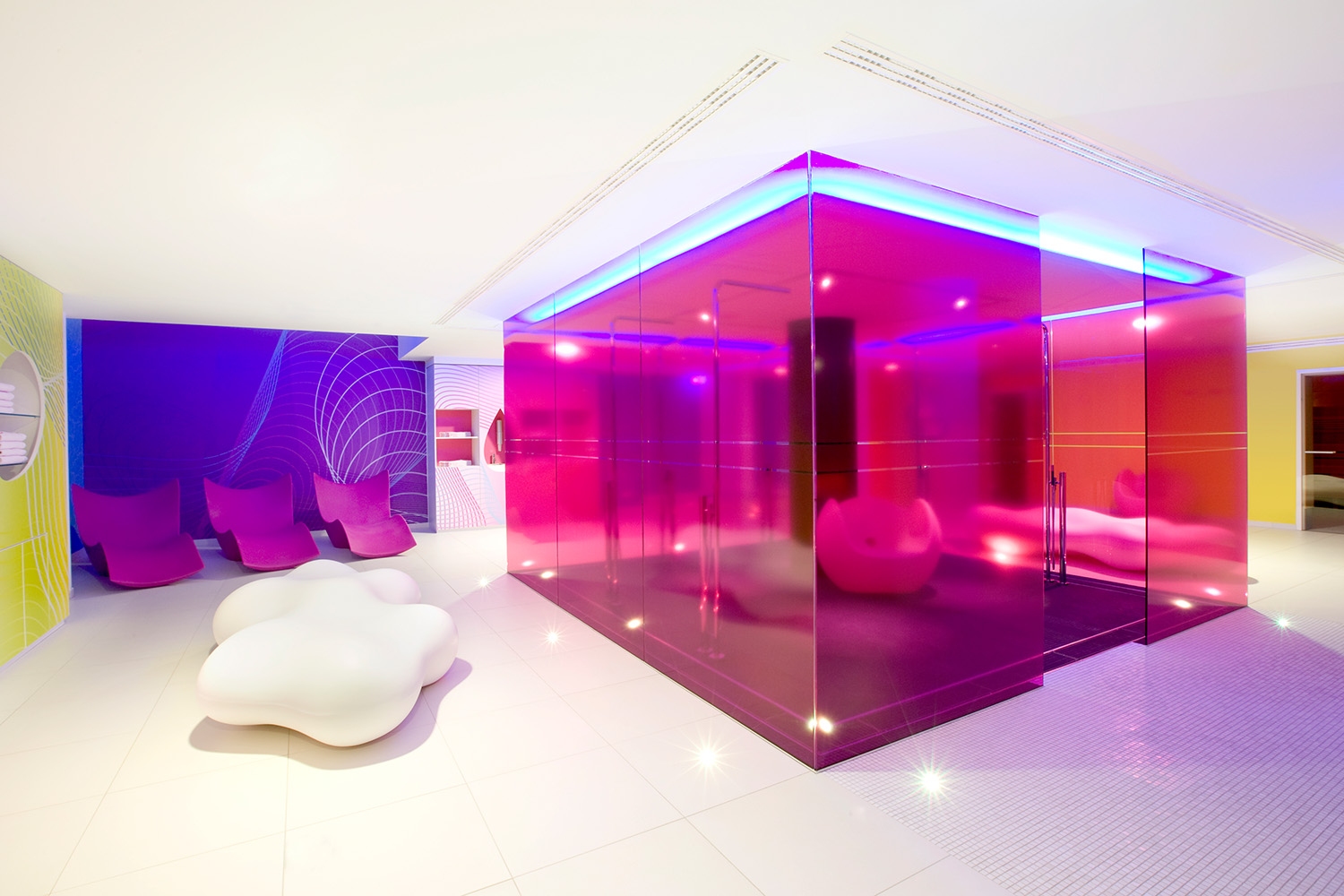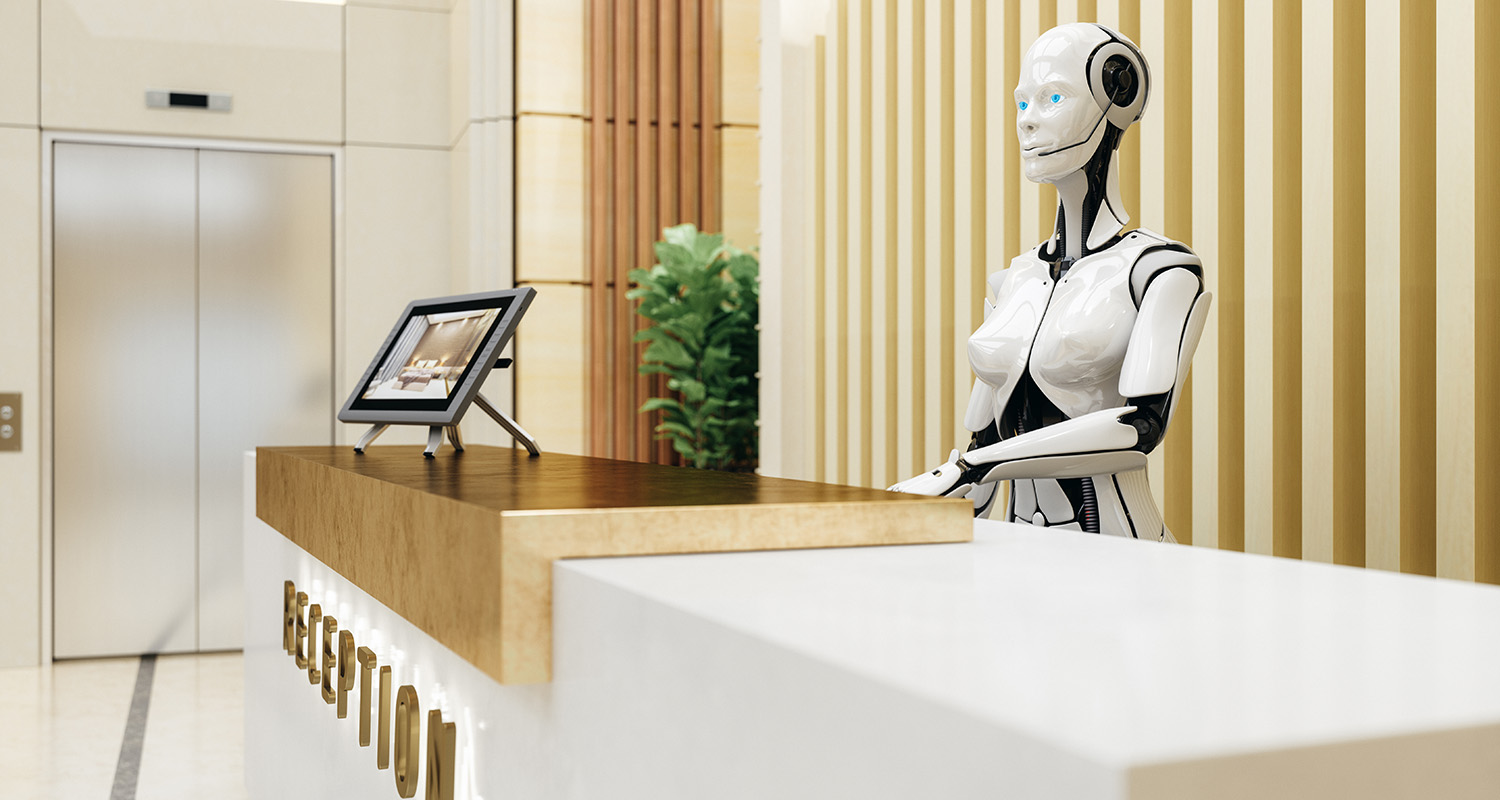
The Future is now
With virtual reality glasses into the Metaverse or rather into a real hotel that looks like it's from a science fiction movie? The future of travel will be massively changed by digitization - a great adventure that has already begun.
June 3, 2022
The pandemic held the New Year's Eve mood hostage, there was no thought of a lavish party and gigantic fireworks - if it hadn't been for an American real estate company advertising an unusual event. Fancy a party in New York's Times Square from the comfort of your own home? The famous square was virtually recreated on the Metaverse platform Decentraland. With a VIP pass, visitors could even watch the fireworks from a skyscraper lounge and greet the New Year with other avatars from around the world.
The catch: all the different Metaverseplatforms available so far are reminiscent of computer games from the 1990s. The avatars are all cartoon characters - this has little to do with sophisticated virtual reality. It still looks like Second Life, the famous online 3D cosmos that caused a sensation in 2003. Nevertheless, properties in the metaverse are being traded for record sums; everyone wants to be part of the hype. However, it will take a few more years before the results are satisfactory and you actually feel like you're immersed in a world that feels fascinatingly real.
Gaming paradise: At the "Atari Hotel" in Las Vegas, different consoles and gaming systems will also be available in the room. ©Gensler
KOREA MAKES ITS CITIES VIRTUAL
But tourism experts are already predicting a great future for the metaverse: it will allow people to travel into space virtually, to a distant past, or simply to real hotspots that are overcrowded; or they can plan their next city trip virtually, checking out what they like and what they really want to see. Countries like Korea are already preparing for this metaverse tourism - they are virtualizing entire cities right now. "One possibility is virtual visits to nature reserves or ecosystems that are very sensitive and in reality can only handle a limited number of visitors. These could be protected by virtual replicas," says German tourism expert Armin Brysch.
The famous ruined city of Machu Picchu in Peru is constantly overrun - in the Metaverse you could visit it without mass crowds. Or you could book an expedition into the past, as the German provider Timeride already has in its range. Using virtual reality goggles, you can even travel in the peacock car of Bavarian King Ludwig II or soar over the Alps in a hot air balloon. Those who have a fear of heights in real life can overcome this in the Metaverse, climb mountains or climb into caves and people with walking disabilities can hike through the jungle hiking. So far, so promising.
Travel on the sofa: crowded tourist attractions are much more relaxing to visit in virtual reality. ©Shutterstock
HOTELS LIKE FROM SCI-FI MOVIES
But if we are honest, these technical possibilities are not at the top of our to-do list right now. After various lockdowns and countless zoom meetings, we want to experience as much as possible in real life again. Travelling is currently even more of an adventure than usual, the wide world beckons. We want to get out of our own four walls, and not just virtually. In any case, there are plenty of weird hotels to discover that look like something out of a science fiction movie. At the "Yotel New York" in the real Times Square, a robot brings the luggage to the room and takes over concierge services. The Yobot, as the non-human helper is called, can carry more than 200 kilos, so you don't have to feel guilty if you've packed your suitcase too full.
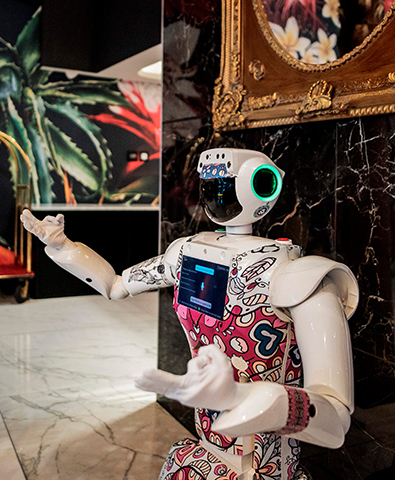
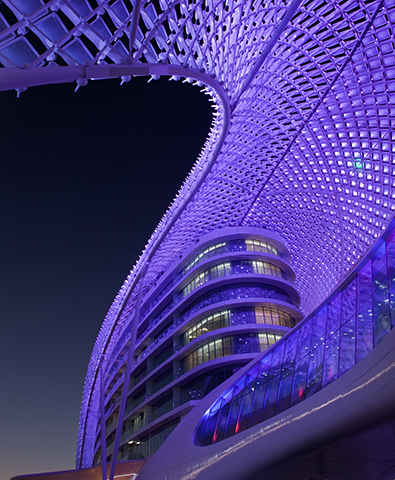
DINOSAURS HELP WITH CHECK-IN
When checking in in Japan at the "Henn na Hotel," you are greeted by a Tyrannosaurus Rex, or you end up with a hotel employee who looks like a human but is an artificial being. This hotel is a great adventure playground for technology fans - at least in theory, because the concept of the hotel, which opened in 2015, hasn't really taken off yet. In 2019, they had half of the 243 robots shut down, because they were causing more work than they were taking away from the human employees. Robots reacted to snoring sounds because they mistook them for words, waking up guests in the process.
The concierge was also phased out because he couldn't answer questions about flight connections and tourist attractions. And the dino-robot always needed human help when it had to scan the passports of foreign guests. Despite all these mishaps: digitization cannot be stopped. In Japan, robots are soon to replace human delivery services. The small, automatically driven food delivery vehicles are something like the food on wheels of the future.
CYPERPUNK DYSTOPIA
Hotels today are becoming more target-group specific; also to set themselves apart from the competition. The "Atari Hotel" (the building looks like the company logo) in Las Vegas wants to open this year and put an end to the bland monotony of one-armed bandits and casinos in the gambling metropolis. For gaming enthusiasts, there will be consoles and gaming systems in the rooms. A "mixture of cyberpunk dystopia and 80s low-bit nostalgia" is promised. You often notice the future in the little things.
In some hotels or Airbnbs, there are no keys anymore; you open the room door with your cell phone. The "Nhow" hotel in Berlin, on the other hand, is gearing up to combine vacation and inspiration - Europe's first music hotel is located on the Spree and was designed by the New York Designer Karim Rashid. There are in-house recording studios with views over the city and a free instrument room service. If you've got a tune in mind, you can have guitars, keyboards, or Bluetooth speakers brought to your room and start improvising right away.
Rehearsal and sound rooms: the "Nhow" hotel in Berlin not only looks spacy, but also has an instrument room service. ©Cem Guenes
DIGITAL OFFER
The figures suggest that many vacationers would like to have a wider digital offering. According to Bitkom Research, the inspiration for one in four trips comes from the web, and seven out of ten respondents would like to see 360-degree images of their destination on a screen in a travel agency. More than half (51 percent) would also like to use virtual reality goggles to experience the vacation destination realistically in advance; 46 percent would like to have travel-related data about the vacation destination played on their smartphones while they are still on the plane.
Looking to the future, seven out of ten respondents say they want smart home technologies in the hotel, such as hotel service automatically detecting whether you are in the room or not. Only robots are not popular: Only 24 percent would be willing to leave reception and check-in to an artificial intelligence - even if that might reduce waiting times. If something doesn't work with a human being, people are more tolerant than if a machine gets stuck.

This article appeared in the Falstaff TRAVEL issue Spring 2022.
